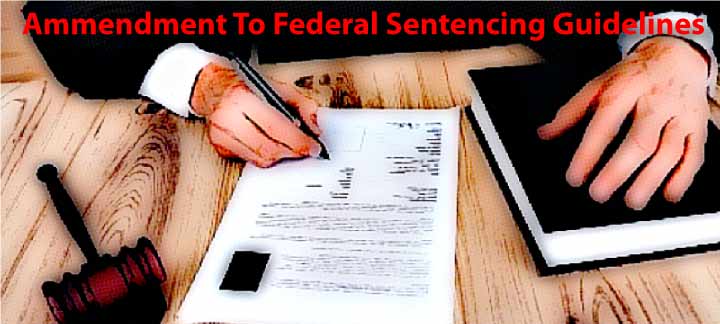New Sentencing Guidelines Reduce Prison Time For Tax Crimes
What are the Federal Sentencing Guidelines?
The Federal Sentencing Guidelines (Guidelines) were created to “further the basic purpose of criminal punishment: deterrence, incapacitation, just punishment, and rehabilitation.” United States Sentencing Commission, Guidelines Manual, §1A1.2 (Nov. 2013). In addition, the Guidelines are supposed to create an effective, fair sentencing system where a sentencing court generally must select a prison sentence from within a prescribed range for tax fraud or tax crimes. See USSG §1A1.2-3. Under the Guidelines, this prescribed sentencing range will be based on the amount of “tax loss” to the Government.
What is a “Tax Loss”?
Unless there are mitigating circumstances, tax loss will be the primary factor in determining the length of a convicted tax offender’s sentence in prison. There are several methods to calculate tax loss based on the type of tax crimes committed. Generally, the Guidelines define loss as “the greater of actual loss or intended loss.” USSG §2B1.1 “Actual loss” includes reasonably foreseeable losses. This type of loss can be immense if a court finds a “casual link” between the defendant’s actions and the suffered loss. See, e.g., United States v. Whiting, 471 F.3d 792, 802 (7th Cir. 2006). “Intended loss” is determined by what loss the government can reasonably show the defendant intended to cause. United States v. Miller, 316 F.3d 495, 505 (4th Cir. 2003).
What New Amendments Changed the Calculation of Tax Loss?
The U.S. Sentencing Commission recently approved amendments to the Guidelines that included new procedures for calculating tax loss. Now the calculation of tax loss can be reduced by credits, deductions, and exemptions related to the tax offense that could have been claimed at the time the tax offense was committed. Previously, US Circuit Courts disagreed about whether or not to allow these deductions in determining tax loss. Today, these deductions cannot be denied if they are reasonable and practicably ascertainable. The defendant has the opportunity to present evidence to support such reduction of tax loss.
How do These Changes in the Sentencing Guidelines Affect me?
Federal guidelines are ultimately analyzed and applied by the Circuit Courts. In the past, the 9th Circuit – which includes California – did not always allow the defendant to reduce the tax loss by legitimate, but unclaimed deductions. As a result of the amendment, a defendant convicted of a tax crime will be able to reduce his/her prison sentence under the aforementioned conditions. Where previously the 9th Circuit could have refused to allow such deduction, it has now become a right of the defendant.
How Can a Tax Attorney Help if I’m Being Prosecuted for a Tax Crime?
It is never too early or too late to get the assistance of an experienced tax attorney. Before the prosecution of a tax crime, a tax lawyer can help during an audit and try to avoid a court case altogether. If a court case nonetheless ensues and a defendant is convicted, the sentencing hearing will define one’s length of incarceration. A tax attorney can attempt to reduce the tax loss determination – the most important factor in determining the length of the prison sentence - as much as possible and mitigate the length of incarceration. A tax attorney will ensure that the new changes to the determination of tax loss are used correctly and for the benefit of the defendant.
If you are facing charges of tax fraud or worried that you may have committed a tax crime, The Tax Lawyer – William D Hartsock offers free consultations with the full benefit and protections of attorney client priviledge.



Comments (0)